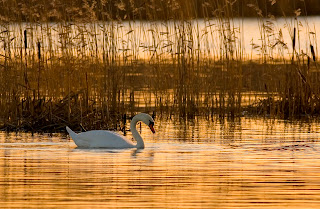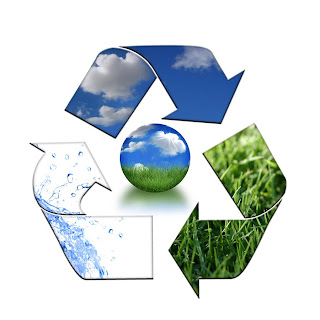Global warming has resulted in alot of losses throughout the World. Many people have realised the need to try to stop global warming from getting worse, thus, many people and governments are working hard to cut greenhouse gases.
Researchers Stephen Pacala and Robert Socolow at Princeton University have suggested one approach that they call "stabilization wedges." This means reducing CFC emissions from a variety of sources with technologies available in the next few decades, rather than relying on an enormous change in a single area. They suggest 7 wedges that could each reduce emissions, and all of them together could hold emissions at approximately current levels for the next 50 years, putting us on a potential path to stabilize around 500 ppm.
Wednesday, April 20, 2011
Wednesday, April 13, 2011
Some pictures on Nature
content/uploads/BridgeWickersNewfoundland246904-2-1024x768.jpg 1023x682.jpghttp://www.beyars.com/dbgfx/pix/497_Abalone-1.jpg
Nature habitat-effects of its depletion
Results of nature habitat depletion are plentiful. One of the major problems of habitat loss would be that: It is one of the primary causes of species extinction in the recent years. Human beings have various influences on the ecosystems and very often, the cause of habitat loss. Awhile back in the 19th century, over-hunting was an important factor of endangered species. But recently, environmental and habitat destruction is equally an important factor. Furthermore, such habitat destruction has no possibility of recovery for endangered species unless the destructed area is reconstructed which would take many years. Natural habitats have already been modified and in a sense destructed in part, even the forests of the Amazon forest or the ice fields of the North Pole. http://www.iemss.org/iemss2002/proceedings/pdf/volume%20tre/247_nakagiri.pdf
Wednesday, March 30, 2011
nature, habitat - global warming
Effects of global warming
Evidence of observed climate change includes rising sea levels, and decreased snow cover in the Northern Hemisphere.Most of the observed increase in global average temperatures since the mid-20th century is very likely due to the observed increase in [human greenhouse gas] concentrations". It is predicted that future climate changes will include further global warming , sea level rise, and a probable increase in the frequency of some extreme weather events. Signatories of the United Nations Framework Convention on Climate Change have agreed to implement policies designed to reduce their emissions of greenhouse gases.
adapted from - http://en.wikipedia.org/wiki/Main_Page
How to reduce global warming
-3 main things to reduce global warming -Reduce, Reuse, Recycle
You can do your part to reduce waste by choosing reusable products instead of disposables. Buying products with minimal packaging (including the economy size when that makes sense for you) will help to reduce waste. And whenever you can, recycle paper, plastic, newspaper, glass and aluminum cans into the recycle bins. If there isn't a recycling program at your workplace, school, or in your community, ask about starting one. By recycling half of your household waste, you can save 2,400 pounds of carbon dioxide annually!
By wanjia...
Evidence of observed climate change includes rising sea levels, and decreased snow cover in the Northern Hemisphere.Most of the observed increase in global average temperatures since the mid-20th century is very likely due to the observed increase in [human greenhouse gas] concentrations". It is predicted that future climate changes will include further global warming , sea level rise, and a probable increase in the frequency of some extreme weather events. Signatories of the United Nations Framework Convention on Climate Change have agreed to implement policies designed to reduce their emissions of greenhouse gases.
adapted from - http://en.wikipedia.org/wiki/Main_Page
How to reduce global warming
-3 main things to reduce global warming -Reduce, Reuse, Recycle
You can do your part to reduce waste by choosing reusable products instead of disposables. Buying products with minimal packaging (including the economy size when that makes sense for you) will help to reduce waste. And whenever you can, recycle paper, plastic, newspaper, glass and aluminum cans into the recycle bins. If there isn't a recycling program at your workplace, school, or in your community, ask about starting one. By recycling half of your household waste, you can save 2,400 pounds of carbon dioxide annually!
By wanjia...
Tuesday, March 8, 2011
nature, habitat - ways to conserve natural habitats
S A V I N G T H E E A R T H
In order to save forests from deforestation, we can reuse papers by using them fully before throwing them away. This will help by reducing the number of trees being cut down that results in animals losing their habitats. After using the papers fully, we can throw them in the recycling bins where after they will be able to reuse its purpose all over again, enabling less wastage of paper.
We can save the Earth by not turning on the air-conditioners as often as switching on the air-conditioners need lots of electricity. We can use the fan instead as the fan uses less electricity than air-conditioners. If people continue to use air-conditioners too often, we will run out of fuels soon. Because of human greed, people created many things such as the computer; which needed much electricity. But in exchange, many things are more convenient to us with the computer.We people created many things to make our life more convenient, but those things are usually bad to Earth as they use much of our natural resources.We should create more things that are good to Earth so that we can save it.
by wanjia and amelia
n_n
∩‿∩
by wanjia and amelia
n_n
∩‿∩
Saturday, March 5, 2011
nature, habitat - global warming
Over the last 50 years, almost 100% of the observed temperature increase has been due to the increase in the atmosphere of greenhouse gas concentrations such as water vapour, carbon dioxide, methane and ozone. Greenhouse gases are gases that contribute to the greenhouse effect. The burning of fossil fuels that leads to the emission of carbon dioxide is the largest contributing source of greenhouse gases.
The effects of global warming are the increase of temperature on earth by about 3 to 5 degree Celsius by the year 2100. The sea levels will also rise bt at least 25 metres by then.
Source: http://en.wikipedia.org/wiki/Global_warming
http://timeforchange.org/cause-and-effect-for-global-warming
http://haildubyus.com/wp-content/uploads/2008/09/2006-02-21-global_warming_polar_bear.jpg
- Xinmin
Source: http://en.wikipedia.org/wiki/Global_warming
http://timeforchange.org/cause-and-effect-for-global-warming
http://haildubyus.com/wp-content/uploads/2008/09/2006-02-21-global_warming_polar_bear.jpg
- Xinmin
Subscribe to:
Comments (Atom)












